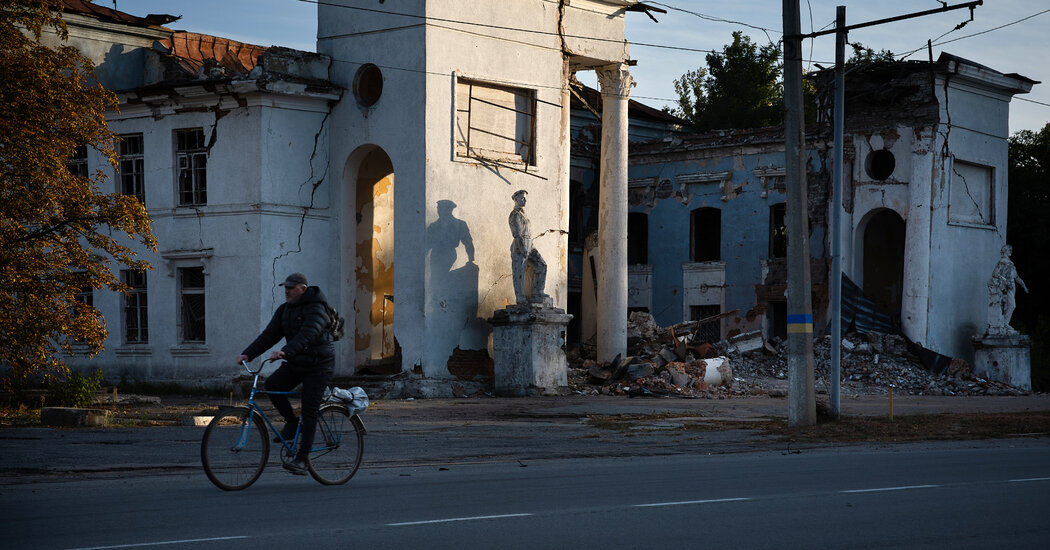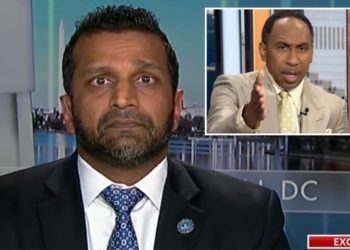The European Union was racing to come up with a plan to keep money and weapons flowing to Ukraine at a moment when support from the United States is uncertain and Kyiv’s needs are gaping.
But on Thursday, the path to a quick solution did not materialize.
Meeting in Brussels, leaders from the bloc’s 27 member nations tried to move forward with a novel, risky idea to use frozen Russian assets to back a 140 billion euro ($163 billion) loan to Ukraine.
But the leaders effectively deferred a clear decision on the loan plan until their December meeting — which suggested that the process might take more time. That could be difficult news for Ukraine, which needs the money urgently.
Here’s what to know.
What’s happening with the plan?
The idea centers on Russia’s assets that have been frozen since Moscow launched its full-scale invasion of Ukraine in 2022.
The European Commission, the European Union’s executive arm, had already circulated a rough outline describing how they might make a loan against those funds. Officials had hoped to receive a clear go-ahead from political leaders meeting in Brussels on Thursday — one asking the commission to lay the legal groundwork for a formal proposal.
But leaders struggled to reach a political agreement on the plan after Belgium, which hosts the frozen assets, voiced pressing concerns that could not be immediately overcome.
In conclusions from their meeting, European Union leaders pledged to find a way to address Ukraine’s financial needs in 2026 and 2027, but they called on the European Commission to explore “options” for providing that support.
That does not close the door on a plan using the frozen assets, but it is not the explicit endorsement of the idea that many officials had expected.
Volodymyr Zelensky, the president of Ukraine, acknowledged at a Thursday afternoon news conference in Brussels that the discussions over the plan were “maybe not simple.”
Ursula von der Leyen, the president of the European Commission, said at a news conference later that the idea was still to focus on a plan involving the immobilized Russian assets.
“We agreed on the what — that is the reparations loan,” Ms. von der Leyen said. “We have to work on the how.”
Where is the money?
A big chunk of the Russian government’s frozen assets sits in Euroclear, a financial institution in Belgium. Europe already funnels to Ukraine the interest earned on those deposits, about $8 billion last year.
Under the new plan, Euroclear would essentially hand control of Russia’s frozen funds to the European Union, which would use the money to back the giant loan to Ukraine. Ukraine would need to repay the money only if it received reparations from Russia.
European Union officials have contended that the setup is legal because the money would be borrowed, not confiscated, so Russia could, at some point in the future, get it back.
But a Kremlin spokesman said recently that “we are talking about theft,” and Russia warned that it could prosecute individuals and countries involved.
How risky is the plan?
The move would be a political and financial gamble, both because of potential Russian retaliation and because it could damage Europe’s reputation as a haven for foreign assets.
As the home of Euroclear, Belgium has worried that it would bear the brunt of any legal or financial fallout, and has been adamant that the risks need to be shared across Europe.
“If we want to do this, we will have to do this altogether,” Bart De Wever, the Belgian prime minister, said on Thursday, adding that every member state would need to chip in if the money needed to be paid back. “The consequences cannot only be for Belgium,” he noted.
Mr. De Wever said that if risks were not shared sufficiently, “I will do everything in my power at the European level, also at the national level, politically and legally, to stop this decision.”
Critics of the plan have warned that using Russia’s assets could make other nations, like China and India, nervous about stashing their savings in European banks, worried that their own assets could be frozen and lent out if they end up on Europe’s bad side.
E.U. officials say the plan is needed.
European Commission officials have argued that those fears are unfounded.
“If you don’t start a war against another country, then your assets are not at risk,” Kaja Kallas, the top E.U. diplomat, told reporters on a recent trip to Kyiv, where she and Mr. Zelensky discussed his country’s pressing budget needs.
Officials have also emphasized why they consider the plan necessary. As the war drags on, Ukraine faces not only huge ongoing costs but also a substantial budget deficit.
A major problem is that American support has dried up.
From 2022 to late 2024, under the Biden administration, Congress appropriated about $174 billion in funding for Ukraine. But under President Trump, U.S. military aid to Ukraine has fallen sharply this year, according to the Kiel Institute think tank, and in recent months has been all but nonexistent.
European nations have given heavily to Ukraine, but in light of their own budget constraints, it is difficult for them to fill the gap as America steps back.
A loan backed by frozen Russian assets could theoretically make up the difference — if European Union nations can come to an agreement. It is not clear what other alternatives the bloc could explore for meeting Ukraine’s financial if the loan plan does not work.
There are big unanswered questions.
If the plan does come to fruition, it has yet to be decided exactly how Ukraine would be able to use the loan.
Some nations, most notably Germany, have suggested that the money should be dedicated to procuring weapons. But Mr. Zelensky himself has suggested that it should also be available for other budgetary needs.
And other practical details remain unresolved.
European nations could provide loan guarantees to put Belgium at ease, but it is not clear how those guarantees would be structured. Would all 27 E.U. nations have skin in the game? Would the guarantees involve any actual collateral?
Belgium wants the broader Group of 7 nations to also support the plan, but it is not clear whether Washington will agree.
Finally, the E.U. executive arm must have a legal plan to ensure that the assets remain frozen for a long time. If the freeze needs to be renewed regularly, as is currently the case, a more Russia-friendly nation like Hungary could throw the loan into chaos by refusing to keep the funds immobilized.
With such substantial questions lingering, even a clear endorsement on Thursday would have only been a first step.
Now, Ms. von der Leyen said, Thursday’s discussion “allowed us to identify points we still need to clarify.”
Jeanna Smialek is the Brussels bureau chief for The Times.
The post Can Europe Agree on Turning Frozen Russian Assets Into Cash for Ukraine? appeared first on New York Times.




